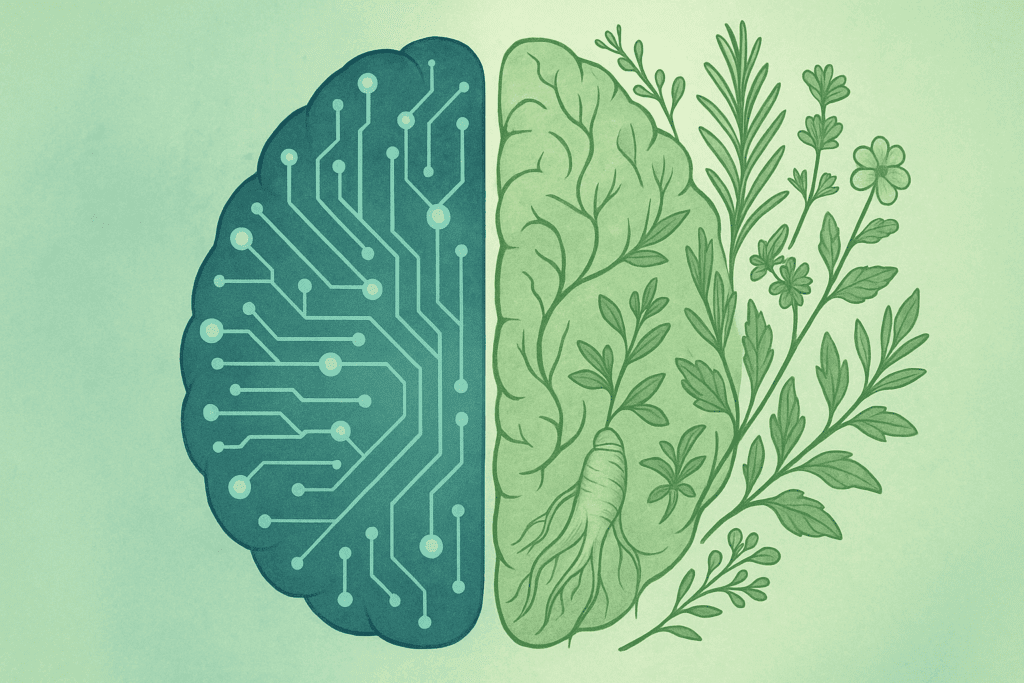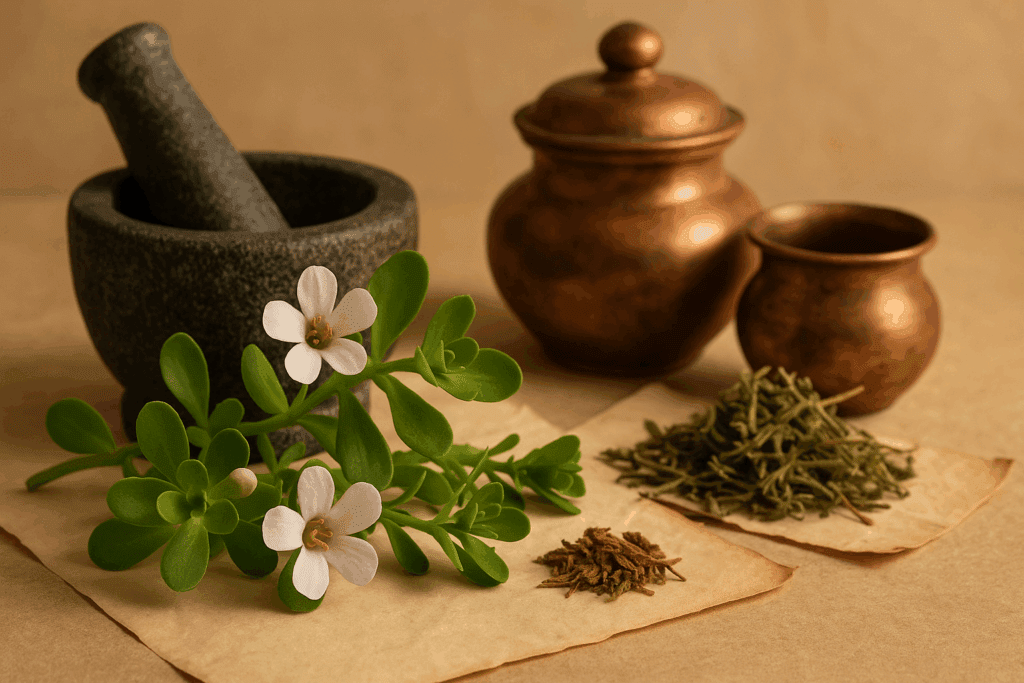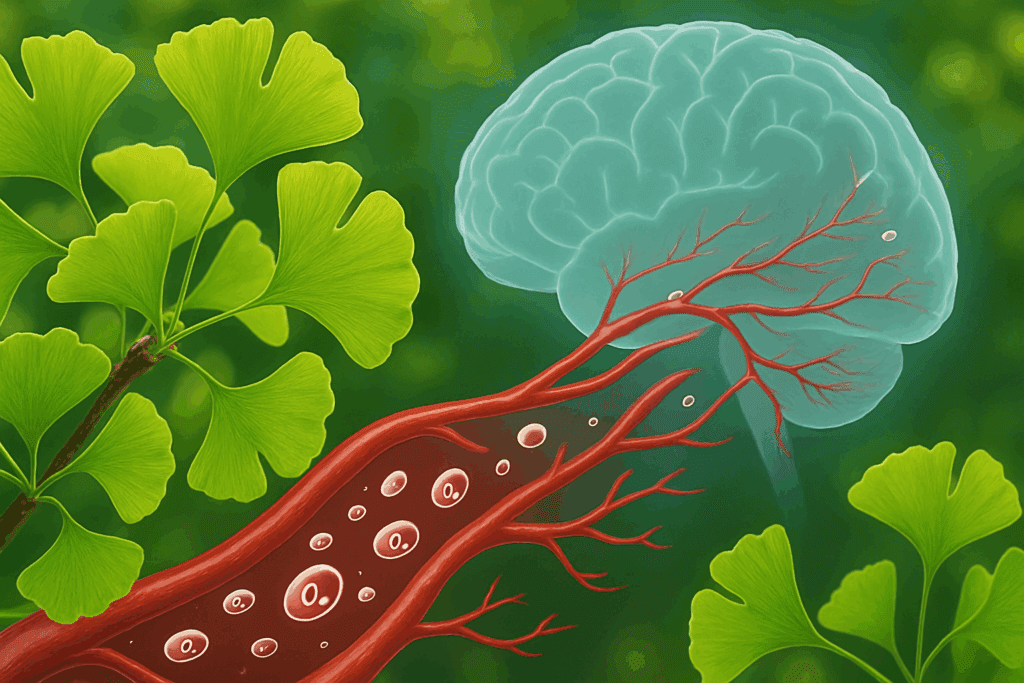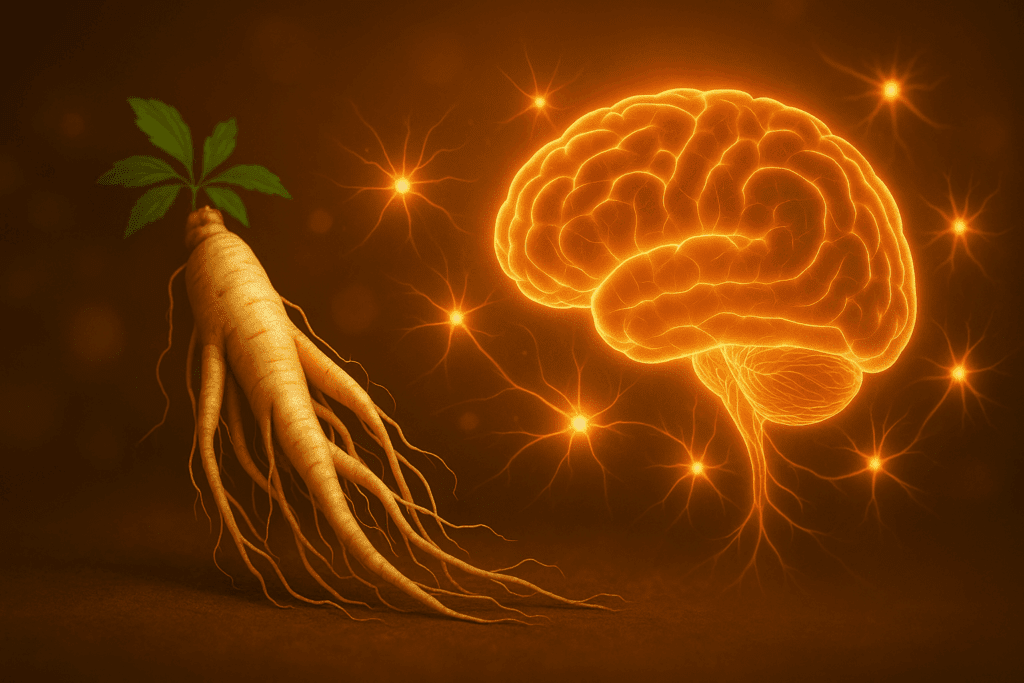Understanding ADHD and the Growing Interest in Natural Solutions
Attention-Deficit/Hyperactivity Disorder (ADHD) is a complex neurodevelopmental condition that affects both children and adults. Characterized by symptoms such as inattention, impulsivity, restlessness, and executive function challenges, ADHD can significantly impact daily functioning and quality of life. While pharmaceutical treatments like stimulants and non-stimulants remain a mainstay of clinical care, there is increasing interest among patients, caregivers, and integrative health professionals in natural remedies that may offer supportive benefits. This rising interest does not necessarily reflect dissatisfaction with conventional treatment but rather a desire to complement existing strategies with evidence-based, gentle alternatives that align with holistic wellness goals.
You may also like: Best Herb for ADHD? What Science Says About Natural Remedies That May Support Focus and Mental Clarity
This shift toward natural and herbal remedies is part of a broader cultural move toward preventive and lifestyle-based interventions. As more people seek strategies on how to reverse cognitive decline or how to prevent cognitive decline before it begins, attention has turned to herbs, diet, and supplementation. At the same time, those living with ADHD or post-brain injury challenges are searching for approaches on how to recover from cognitive impairment in ways that are sustainable and gentle on the body. Within this context, herbal medicine holds promise—not as a cure, but as an adjunct to cognitive support and neural nourishment.

Why Herbs for ADHD Are Gaining Scientific Attention
For decades, herbal medicine was dismissed as mere folklore, often lacking the rigorous clinical validation expected in modern medicine. However, as the scientific community has begun to examine herbal compounds with the same scrutiny given to pharmaceuticals, promising results are emerging. Researchers are increasingly focusing on how specific herbs may influence neurotransmitter activity, modulate inflammation, enhance circulation to the brain, and protect against oxidative stress. These mechanisms are directly relevant to ADHD, where dysregulation in dopamine, norepinephrine, and serotonin pathways plays a pivotal role.
Additionally, herbal remedies tend to have a lower side effect burden compared to synthetic medications, especially when used at recommended doses. This makes them appealing for individuals seeking gentler interventions or who may be sensitive to the stimulating effects of conventional drugs. The growing body of research exploring how to prevent cognitive decline through natural means further elevates the profile of these botanicals in managing attention and memory concerns. Herbal medicine, when used with clinical wisdom and research-backed insight, may indeed support efforts to improve focus and reclaim mental clarity.
Bacopa Monnieri: The Ayurvedic Star for Cognitive Support
Among the herbs studied for cognitive enhancement, Bacopa monnieri stands out as one of the most researched and respected. Traditionally used in Ayurvedic medicine for centuries under the name “Brahmi,” Bacopa has demonstrated potent adaptogenic and nootropic properties. In clinical trials, Bacopa has been shown to improve memory retention, reduce anxiety, and enhance information processing. These benefits are attributed primarily to its active compounds known as bacosides, which support synaptic communication and protect brain cells from oxidative damage.
Bacopa’s potential in ADHD management lies in its multi-dimensional effects. Studies have shown that Bacopa supplementation may lead to improvements in attention, working memory, and even behavioral symptoms in children with ADHD. Its ability to support stress resilience also makes it especially useful for those whose cognitive challenges are exacerbated by anxiety or emotional dysregulation. Importantly, Bacopa works gradually and accumulates benefits over time—a pattern that aligns with the long-term strategies often employed when learning how to recover from cognitive impairment holistically.

Ginkgo Biloba: Enhancing Circulation and Memory
Ginkgo biloba is another botanical powerhouse frequently discussed in the context of brain health. Known for its ability to improve cerebral circulation, Ginkgo has been studied extensively for its effects on memory, focus, and neurodegenerative conditions. Its benefits are believed to stem from enhanced blood flow to the brain and potent antioxidant activity that protects neurons from oxidative stress and inflammation.
In people with ADHD, Ginkgo may support mental clarity and attentional capacity by enhancing oxygen and nutrient delivery to the brain’s cognitive centers. Some studies have also observed improved executive function and reduced hyperactivity when Ginkgo is combined with other treatments or used in mild to moderate cases. Its application in research on how to reverse cognitive decline makes it a compelling option for both preventative care and support during early-stage cognitive deterioration. When paired with lifestyle interventions like mindful nutrition and exercise, Ginkgo may offer a synergistic boost to cognitive resilience.
Rhodiola Rosea: Adaptogen for Mental Energy and Stress Regulation
Rhodiola rosea, a high-altitude adaptogen native to Siberia, is gaining popularity for its ability to combat mental fatigue and improve emotional resilience. Its active compounds, including rosavin and salidroside, influence key neurotransmitters such as serotonin, dopamine, and norepinephrine—each of which plays a role in regulating mood, motivation, and attention. This makes Rhodiola a candidate of interest for those exploring herbs for ADHD-related focus deficits.
Clinical studies have shown that Rhodiola may reduce fatigue, improve cognitive performance under stress, and enhance short-term memory. For individuals with ADHD, especially those who experience energy crashes or difficulty sustaining effort, Rhodiola may offer a gentler way to stabilize focus and productivity without overstimulation. Additionally, because stress can exacerbate ADHD symptoms and contribute to cognitive dysfunction, Rhodiola’s calming yet energizing effects align well with approaches focused on how to prevent cognitive decline through holistic stress regulation.

Panax Ginseng: Cognitive Endurance and Neurotransmitter Modulation
Panax ginseng, or Korean ginseng, is another adaptogenic herb with a long history of use in traditional Chinese medicine. Rich in ginsenosides, Panax ginseng has been shown to enhance mental endurance, reduce mental fatigue, and support neuroplasticity. These benefits are particularly relevant for individuals with ADHD, who often struggle with sustained mental effort, task switching, and working memory.
Research indicates that Panax ginseng may improve attention and cognitive function, particularly under conditions of fatigue or cognitive stress. Its ability to modulate the hypothalamic-pituitary-adrenal (HPA) axis and influence neurotransmitter systems involved in alertness and memory makes it a promising botanical for people seeking non-stimulant alternatives. Moreover, studies exploring how to recover from cognitive impairment have identified Panax ginseng as a potential neuroprotective agent that supports brain regeneration and synaptic repair.
Gotu Kola: Nervous System Tonic with Cognitive Calming Benefits
Gotu kola, known botanically as Centella asiatica, is often described as a rejuvenating herb for the nervous system. It has long been used in both Ayurvedic and Traditional Chinese Medicine to support memory, reduce anxiety, and improve concentration. Gotu kola’s saponins, including asiaticoside and madecassoside, appear to strengthen blood vessels, enhance microcirculation, and promote the growth of new neural connections.
For ADHD, Gotu kola may be especially helpful in reducing anxiety-driven distraction and promoting a sense of grounded focus. While it does not have the stimulant effects of pharmaceuticals, its gentle tonic action can support the calm alertness that many individuals with ADHD seek. Its neurotrophic effects are also of interest to researchers investigating how to reverse cognitive decline through natural brain-supporting compounds. As a plant that nourishes rather than pushes, Gotu kola offers a sustainable way to foster cognitive clarity.

L-Theanine and Green Tea: Smooth Focus and Dopamine Support
Although not an herb in the strictest sense, L-theanine—a unique amino acid found in green tea—deserves mention in any discussion of natural ADHD strategies. L-theanine promotes alpha brain wave activity, which is associated with relaxed alertness and a flow-like cognitive state. It also influences dopamine and serotonin levels, making it potentially useful for modulating mood and attention.
Studies have demonstrated that L-theanine may enhance attentional control, reduce mind wandering, and improve response accuracy in cognitive tasks. When paired with small amounts of caffeine (as found naturally in green tea), it may improve alertness without the jitteriness often associated with higher-dose stimulants. For those who want to know how to prevent cognitive decline while enhancing productivity, L-theanine offers a gentle, evidence-based option that is well-tolerated and widely accessible.
Navigating Quality, Dosage, and Safety When Using Herbs for ADHD
While the potential benefits of herbs for ADHD are compelling, it is essential to approach herbal supplementation with discernment. Not all supplements are created equal. Product quality can vary significantly based on factors such as sourcing, extraction method, standardization, and third-party testing. When choosing an herbal remedy, opt for brands that are transparent about their sourcing and provide Certificates of Analysis verifying potency and purity.
Equally important is the issue of dosage. The effectiveness of a given herb often depends on the right dose, which may vary depending on age, body weight, and individual biochemistry. Consulting with a qualified integrative health practitioner or clinical herbalist can help ensure the safe and appropriate use of botanicals, especially when used alongside conventional ADHD medications. Additionally, long-term safety data for some herbs remain limited, making periodic evaluations essential for those who incorporate herbs into their ongoing cognitive health strategy.
Supporting ADHD and Brain Health Holistically Through Diet and Lifestyle
Herbs are just one part of a broader strategy for cognitive wellness and ADHD management. Nutrition, physical activity, sleep quality, and mindfulness-based stress reduction all play powerful roles in shaping attention and memory. Emerging research continues to demonstrate that an anti-inflammatory diet rich in omega-3 fatty acids, antioxidants, and B vitamins supports overall brain health and may contribute to efforts aimed at how to prevent cognitive decline.
Sleep, often overlooked, is another critical pillar of cognitive health. Sleep deprivation exacerbates ADHD symptoms, impairs memory consolidation, and reduces executive function. Likewise, movement—whether in the form of structured exercise or unstructured outdoor play—supports neurogenesis and promotes dopamine regulation. Mindfulness practices such as meditation and breathwork may also improve emotional regulation and help individuals recover from cognitive impairment associated with stress or trauma. Ultimately, the most effective ADHD strategies integrate botanical remedies within a comprehensive lifestyle matrix designed to nourish the brain from multiple angles.

Frequently Asked Questions: Natural Herbs for ADHD and Cognitive Health
What makes natural herbs a sustainable option for managing ADHD long term?
Natural herbs offer a slower, more balanced approach to supporting focus and clarity, which many individuals find easier to sustain over time. Unlike stimulants that may lead to tolerance or side effects with prolonged use, herbs like Bacopa, Gotu Kola, and Rhodiola work by gradually optimizing neurotransmitter function and supporting stress resilience. This approach is especially relevant for individuals exploring how to reverse cognitive decline through daily habits rather than relying solely on pharmaceuticals. Because these herbs also promote long-term brain health, they fit well into strategies focused on how to prevent cognitive decline in aging populations or those experiencing cognitive stress. Moreover, by integrating herbal support with diet and lifestyle changes, users can better personalize their plan to recover from cognitive impairment over time.
Can herbal remedies be used alongside conventional ADHD medication?
Yes, but this should always be done under professional supervision. Many herbs can safely complement conventional ADHD medications and even buffer their side effects by supporting liver detoxification, mood balance, and nervous system resilience. For example, L-theanine may help reduce the jitteriness caused by stimulants, and Bacopa may assist with sleep disruptions that sometimes follow medication use. Individuals focused on how to recover from cognitive impairment caused by long-term stimulant use may especially benefit from a holistic plan that includes herbs. It’s also important to note that integrative approaches combining medication with natural remedies can better support efforts around how to reverse cognitive decline over time, rather than relying on a single modality.
How do adaptogenic herbs help in managing ADHD symptoms?
Adaptogens work by enhancing the body’s ability to resist and recover from stress, which is crucial for individuals with ADHD who often face heightened emotional reactivity and attention regulation challenges. Herbs like Rhodiola rosea and Panax ginseng help modulate the stress response by supporting the HPA axis and balancing cortisol levels. These benefits can improve executive function and support emotional regulation, both of which are key to learning how to prevent cognitive decline as individuals age. Additionally, adaptogens contribute to long-term brain health and may be useful in personalized strategies aimed at how to recover from cognitive impairment after chronic stress or trauma. Their cumulative effect builds resilience across cognitive and emotional domains.
Are there gender-specific considerations when using herbs for ADHD?
Yes, hormonal fluctuations and metabolic differences can influence how herbs work in men and women. For example, women with ADHD may benefit more from Gotu Kola and Ginkgo biloba due to their calming and circulatory effects, especially during menstrual cycles or perimenopause. These herbs can help smooth mood swings and reduce mental fog, aligning with goals for how to reverse cognitive decline during hormonally vulnerable life stages. Meanwhile, men might respond more strongly to Panax ginseng, which supports testosterone balance and cognitive stamina. Understanding these nuances helps tailor protocols that not only address ADHD symptoms but also align with how to prevent cognitive decline in a personalized, gender-aware way.
How can diet enhance the effectiveness of herbal ADHD treatments?
Diet is a cornerstone of cognitive resilience, and pairing herbal supplements with an anti-inflammatory, brain-focused diet amplifies their effects. Foods rich in omega-3 fatty acids, B vitamins, and polyphenols help create the biochemical conditions that allow herbs to work more effectively. For example, combining Bacopa with a high-antioxidant diet may yield better results in those trying to understand how to recover from cognitive impairment. Similarly, when individuals focus on how to prevent cognitive decline through food, they set a foundation that enables herbs to act synergistically. Including prebiotic and probiotic foods may also improve gut-brain axis function, which plays a crucial role in attention, mood, and memory.
Can cognitive training enhance the effects of herbal supplementation?
Absolutely. While herbs can support brain chemistry, cognitive training builds neural pathways through repeated mental challenge and adaptation. When used together, these strategies create a feedback loop: herbs improve focus and working memory, allowing for more effective training sessions, while training increases the brain’s receptivity to neurotrophic herbs like Gotu Kola and Ginseng. People looking at how to reverse cognitive decline or how to recover from cognitive impairment post-injury often benefit from combining these tools. This dual approach—biochemical and behavioral—can significantly enhance executive functioning and learning capacity. Long term, this synergy contributes to sustained cognitive performance and mental flexibility.
Are there any risks associated with long-term use of cognitive-enhancing herbs?
While many herbs are safe for extended use, some require periodic cycling to prevent receptor desensitization or metabolic overload. Panax ginseng, for instance, may be best used in intervals to avoid overstimulation. Regular check-ins with an integrative practitioner are important, especially for individuals with preexisting conditions or those on medications. Those pursuing how to reverse cognitive decline naturally should be mindful that excessive or unsupervised use can lead to paradoxical effects, such as brain fog or anxiety. A strategic, monitored approach to herbal use ensures safety while maximizing benefits for those learning how to prevent cognitive decline and maintain optimal mental clarity.
How early should someone start using herbs if they are concerned about future cognitive issues?
Preventive care for brain health can begin as early as one’s twenties or thirties, especially for individuals with a family history of neurodegenerative conditions or early cognitive wear-and-tear. Herbs like Bacopa, Rhodiola, and Ginkgo are not only therapeutic but also prophylactic, meaning they can be used to establish cognitive reserve long before problems arise. For those seriously exploring how to prevent cognitive decline, starting early provides a buffer against later-life cognitive vulnerabilities. This proactive strategy can also accelerate recovery in those already seeking how to recover from cognitive impairment due to stress, poor diet, or trauma. Early action tends to offer the most significant neuroprotective returns.
What role does sleep play in supporting herbal protocols for ADHD?
Sleep is a vital yet often overlooked component of ADHD management and cognitive health. Poor sleep disrupts neurotransmitter balance and neuroplasticity, blunting the benefits of herbs like L-theanine and Gotu Kola that aim to enhance these very functions. By ensuring deep, restorative sleep, individuals can better engage with strategies for how to reverse cognitive decline and maintain brain elasticity. Techniques such as herbal teas before bed, magnesium-rich meals, and consistent sleep hygiene amplify the impact of supplementation. Furthermore, individuals learning how to recover from cognitive impairment often find that sleep is the missing link in their otherwise comprehensive wellness protocol.
What does the future hold for herbal treatments in cognitive and ADHD care?
The future of herbal care for cognitive support and ADHD looks promising, as interest in plant-based neuroscience continues to grow. Advances in nutrigenomics and pharmacognosy are helping researchers map how specific compounds interact with individual genetic profiles. This opens the door for truly personalized nootropic protocols that align closely with goals for how to recover from cognitive impairment and how to prevent cognitive decline in both healthy and vulnerable populations. We may also see novel delivery systems—such as transdermal patches or liposomal encapsulations—that improve absorption and efficacy. As evidence accumulates and technology advances, herbs are likely to become even more integral to the evolving landscape of integrative cognitive care.

Conclusion: Reclaiming Focus and Mental Clarity Through Natural Intelligence
In the search for the best herb for ADHD, it becomes clear that no single plant can serve as a silver bullet. However, a growing body of evidence supports the role of specific botanicals in enhancing focus, improving memory, and promoting long-term brain health. Herbs such as Bacopa monnieri, Ginkgo biloba, Rhodiola rosea, Panax ginseng, and Gotu kola offer unique benefits that align with the neurobiological needs of individuals living with ADHD.
These herbs do more than offer temporary relief—they engage with the body’s inherent healing systems to restore balance, resilience, and clarity. When used thoughtfully, they may help those wondering how to reverse cognitive decline or how to recover from cognitive impairment find meaningful support. Combined with diet, movement, sleep hygiene, and integrative mental health care, natural remedies can be powerful allies in the quest for cognitive vitality.
As always, any approach to ADHD or cognitive challenges should be individualized, evidence-informed, and guided by professionals who understand both conventional and integrative models of care. In the hands of an educated and proactive individual, herbs represent a bridge between ancient wisdom and modern science—one that may gently guide the mind toward greater focus, memory, and mental clarity.
Further Reading:
7 Best Herbs for Memory and Brain Health


